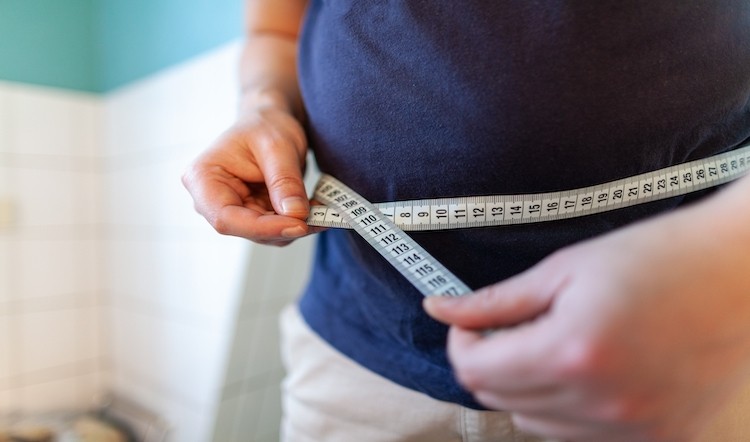Government plan to tackle obesity ‘a terrible missed opportunity’

The Department of Health and Social Care has unveiled plans to tackle obesity across the UK in the wake of the coronavirus pandemic. It said the urgency of tackling the “obesity time bomb” had been highlighted by evidence – cited in a Public Health England report – that obesity was an increased risk factor in relation to COVID-19.
Nearly 8% of critically ill patients with COVID-19 in intensive care units have been morbidly obese, compared with 2.9% of the general population, it said.
A raft of measures have been revealed as part of the new strategy as well as a new "Better Health" campaign, headed up by Public Health England.
The measures include a ban on TV and online adverts for food high in fat, sugar and salt before 9pm, the end to retail deals such as ‘buy one get one free’ on unhealthy food and calories to be displayed on menus when people are eating out.
The Government is to hold a short consultation on whether the ban on online adverts should apply at all times of day. There will also be new legislation that will restrict the promotion of foods high in fat, sugar, such as ‘buy one get one free’ offers. There will also be a ban on these items being placed in prominent locations in stores, such as at checkouts and entrances, and online.
Calorie counts
There will be new laws that will require large restaurants, cafes and takeaways with more than 250 employees to add calorie labels to the food they sell. Before the end of the year an alcohol calorie labelling consultation will also be launched with a view to adding calorie counts to alcohol packaging.
The Government said it would also look to consult and
gather views and evidence on the current ‘traffic light’ labelling system to learn more about how this is being used by consumers and industry, compared to international examples.
Prime Minister, Boris Johnson said: “Losing weight is hard but with some small changes we can all feel fitter and healthier
“If we all do our bit, we can reduce our health risks and protect ourselves against coronavirus – as well as taking pressure off the NHS.”
Health secretary, Matt Hancock said: “When you’re shopping for your family or out with friends, it’s only fair that you are given the right information about the food you’re eating to help people to make good decisions.
“To help support people we need to reduce unhelpful influences like promotions and adverts that affect what you buy and what you eat. Taken together, supported by an inspiring campaign and new smart tools, will get the country eating healthily and losing the pounds.”
However, Tim Rycroft, chief operating officer at the FDF raised concerns about the plans.
“The UK’s food and drink manufacturers and the half a million people we employ – so recently the heroes heralded by government for feeding the nation during the COVID crisis – will be reeling today from this punishing blow,” he said.
“As the economy struggles to recover, new restrictions on promoting and advertising everyday food and drink will increase the price of food, reduce consumer choice and threaten jobs across the UK. And all to save 17 calories a day.”
Rycroft said that there is a “terrible missed opportunity” for a bold programme to promote healthier lifestyles and better diet choices by encouraging consumption of fibre, fruit and vegetables.
'Precarious economic time'
He was also concerned about the ban on food and drink promotions in retail especially at such a “precarious economic time” and with household budgets more stretched than ever before.
“For more than a decade, our industry has worked willingly with successive governments to reduce salt, fat and sugars,” he said. “Government is right in its renewed ambition for a healthier, more active population, but it is also time it put real money behind specific, targeted measures to help those most afflicted by obesity, rather than relying on headline chasing measures.
“Manufacturers, meanwhile, will see little point in introducing lower-sugar or lower-calories variants of their products into a market in which it will not be possible to advertise or promote them to shoppers. Since 2006, industry has worked in partnership with government and 100s of everyday products have been reformulated to make them healthier, in-line with government guidelines.
“Healthier choices will now fall foul of the government’s illogical rules. Start-ups and challenger brands will find it much harder to get ‘share of shelf’ against established brands without promotions to raise their profile, leading to less choice for shoppers.”
Professor Judith Buttriss, director general, British Nutrition Foundation (BNF), said that COVID-19 had shown that more needed to be done to tackle adult obesity, alongside initiatives targeted at promoting a healthy lifestyle in children. She said that the support for people who wanted to lose weight and improve their health was a “step in the right direction.”
“Research on COVID-19 and obesity is at an early stage but obesity appears to be associated with worse coronavirus outcomes," Buttriss said. "There is also strong evidence that obesity increases the risk of developing type 2 diabetes, cardiovascular disease and some cancers."
“However, given the scale of the problem, it is likely that further action across many different areas will be needed in order to have a significant impact on obesity levels. The progressive rise in obesity we have seen in recent decades is related to major changes in our environment and the way we live, where energy dense foods are readily available and it’s very easy to be inactive. Therefore, tackling obesity requires many changes to make it easier for us to act on our intentions to improve our health, to eat healthily and be active, and this is not something that is quick or easy to fix.”
She said to tackle obesity effectively socioeconomic inequalities would also have to be addressed especially in light of the serious economic effects of the COVID-19 outbreak.
“The reasons why people develop obesity are complex and are not simply due to lack of willpower or motivation. Losing weight, and especially keeping it off, is very challenging and people need effective support to help them do this, in order to improve our health as a nation long-term.”
The Institute of Food Science & Technology (IFST) said it recognised the need to tackle the concerning rise in obesity, brought into sharp focus during the current COVID-19 pandemic.
A spokeswoman said: “The Institute also recognises that this is a complex, multi-facetted problem which will require engagement and cooperation from a wide range of parties including governments, and the whole food sector, to nudge the population to a healthier state, as well as consumers themselves. As such, we broadly welcome this strategy.”
"It said it strongly recommends increasing education on food ingredients, processing, preparation and nutrition, in schools, to update, raise awareness and re-educate the population to better understand about foods as well as the importance of a balanced diet."
Katie Vickery, head of food law at Osborne Clarke, said the Government's announcement that it intends to ban junk food ads before 9 pm could result in food manufacturers making their food "healthier" in exchange for greater advertising opportunities.
"Food manufacturers have been working hard over the last few years to reformulate their products and the Government's announcement could well incentivise further reformulation in order to secure advertising privileges. However, is this blanket ban on so called "junk food" actually using the proverbial sledgehammer to crack a nut?” she said.
“The question of what makes a food healthy is complex. For example is it more important to reduce fat or sugar? And what about other beneficial nutrients such as fibre or vitamins? The Government runs the risk of confusing consumers and alienating certain foods that are "healthy" when consumed in moderation."
Where is education on the UK's new #obesitystrategy ?
— Hannah Theobald, PhD (@NutritionHannah) July 27, 2020
I know the strategy's for the whole population, but PHE's obesity & Covid report states dietary habits are formed early in life. The national curriculum doesn't go far enough on nutrition. Food tech A'level was abolished too
Very disappointing #obesity strategy from the UK government @BorisJohnson.Disappointing because it is:1)#weight biased 2)non #evidence-based and subsequently unlikely to be effective 3)ignores people with #obesity ie ignores treatment of obesity #obsmukhttps://t.co/2n1FmI6O3Bpic.twitter.com/0TWwdRP8ko
— Zaher Toumi MD (@ZaherToumi) July 27, 2020
















